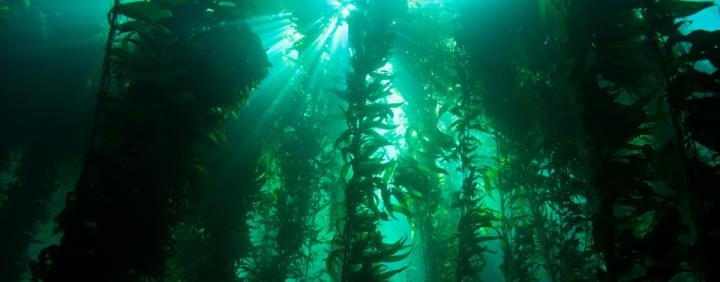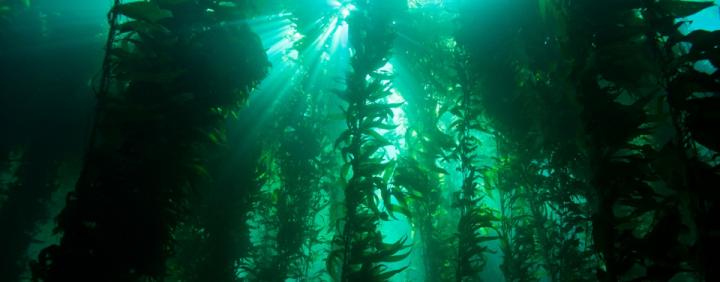
Credit: Photo courtesy of National Oceanic and Atmospheric Administration
CORVALLIS, Ore. – The first global assessment of marine kelp ecosystems shows that these critically-important habitats have exhibited a surprising resilience to environmental impacts over the past 50 years, but they have a wide variability in long-term responses that will call for regional management efforts to help protect their health in the future.
The findings were published today in Proceedings of the National Academy of Sciences.
Scientists noted that kelp forests have a remarkable ability to recover quickly from extreme damage, but they can still be overwhelmed in some instances by the combination of global and local pressures.
This points to the need for regional management efforts that carefully consider local conditions when trying to offset human-caused impacts from climate change, overfishing and direct harvests, researchers said.
Kelp forests, the largest species of algae in shallow, coastal waters almost everywhere except the tropics, are a globally important foundation species that occupy almost half of the world's marine ecoregions. Often harvested directly, they help support commercial fisheries, nutrient cycling, shoreline protection, and are valued in the range of billions of dollars annually.
The new research was conducted by an international team of 37 scientists who analyzed changes in kelp abundance in 34 regions of the planet that had been monitored over the past 50 years.
"Kelp forests are cold-water, fast-growing species that can apparently withstand many types of environmental disturbances," said Mark Novak, an assistant professor of integrative biology in the College of Science at Oregon State University, co-author of the study, and an organizer of the international group at the National Center for Ecological Analysis and Synthesis that conducted this research.
"The really surprising thing in this study was how much region-to-region variation we found, which is quite different from many other ecosystems. Thus, despite global threats like climate change and ocean acidification, the battle to protect our kelp forests of the future may best be fought locally – in the U.S., by states, counties, even individual cities and towns."
These forests can grow fast, tall, and are highly resilient – but also are often on the coastal front line in exposure to pollution, sedimentation, invasive species, fishing, recreation and harvesting. Even though "they have some of the fastest growth rates of any primary producer on the planet," the researchers wrote, there are limits to what they can take.
In their study the scientists concluded that of the kelp ecosystems that have been studied, 38 percent are in decline; 27 percent are increasing; and 35 percent show no detectable change. On a global scale, they are declining at 1.8 percent per year.
Where kelp resilience is eroding and leading to declines in abundance, impacts to ecosystem health and services can be far-reaching, the researchers wrote in their report.
###
This research was supported by the National Science Foundation, the University of California/Santa Barbara, and the state of California.
Media Contact
Mark Novak
[email protected]
541-737-3610
@oregonstatenews
http://www.orst.edu
############
Story Source: Materials provided by Scienmag





